Plenary Session 1: Innovations in Rural Workforce Development
Moderated by Joyce Kryszak from the Maine Monitor
This panel will focus on the opportunities and challenges in supporting innovative approaches to rural workforce development in Maine across sectors, including education, healthcare, law and natural resource fields. Panelists include:
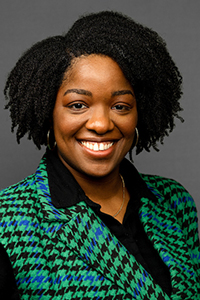
Dr. Tara Casimir
Assistant Professor of Nursing
University of Southern Maine
Dr. Tara Casimir joined the University of Southern Maine School of Nursing in 2020 as an Assistant Professor of Nursing. Her current scholarly focus centers on international development work from the perspectives of health care providers engaged in philanthropic medical missions to low- and middle-income countries. As a nurse educator, she teaches across the curriculum primarily in the core skills of medical surgical nursing, fundamentals of nursing practice, gerontology, and interprofessional collaboration.

Dr. Chris Northrop
Professor Emeritus
Maine Law
Christopher Northrop started his work defending system involved youth and representing indigent and low-income clients over thirty-five years ago. In 2006 he left private practice to develop and launch the Juvenile Justice Clinic (now the Youth Justice Clinic) at Maine Law, a program he directed for 16 years. In 2022 he was appointed as the Managing Co-Director of Maine Law’s Clinical Programs where he helped develop their Rural Practice Clinic (RPC). This fall Chris stepped down from his director duties in Portland and moved to Fort Kent to serve as the Supervising Professor for RPC’s student attorneys. Chris is a graduate of Grinnell College (1983) and University of North Carolina at Chapel Hill School of Law (1986).
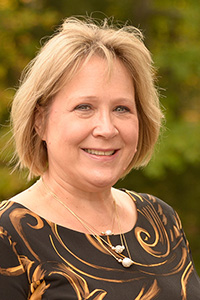
Dr. Patricia Williams
Professor of Early Childhood Education
University of Maine at Farmington
Dr. Patricia Williams arrived at UMF in 2012. Her scholarship examines home visiting programs, parent involvement, the support needs of new parents, toddler curriculum, and service learning. She has received grants from the March of Dimes, the MA Department of Education, and the American Association of Colleges and Universities. She serves as editor of Annual Editions: The Family (McGraw-Hill). Prior to arriving at UMF Dr. Williams worked as an early intervention teacher, an afterschool program coordinator, and a research consultant to early childhood programs and school districts in Massachusetts and Maryland.

Shane O’Neill
Forest Industry Business Development Manager
Office of Strategic Partnerships
University of Maine
Shane O’Neill is the Forest Industry Business Development Manager at the University of Maine. Serving as a forest sector advocate for Maine’s forest economy, he works across programs and departments within the University of Maine System to connect forest-focused businesses and communities with university resources to support business development, technology commercialization, and rural community economic diversification. As a committee member of the Forest Opportunity Roadmap/Maine (FOR/Maine) collaboration, Shane works with industry, government agencies, and trade associations to strengthen Maine’s forest sector and attract emerging technologies to diversify the state’s forest economy. Prior to joining the university, he worked within the building products industry, founded and operated two separate consulting businesses, and worked in composites research and development. He received an M.S. from UMaine and a B.S. from Michigan Tech University.
Plenary Session 2: Cultivating Climate Resilience in Rural Maine
Moderated by Emmett Gartner from the Maine Monitor
This panel will focus on the ways in which the University of Maine system is partnering with communities to support climate resilience in the face of changing coastal ecologies, both social and environmental. Panelists include:

Dr. Caroline Noblet
Associate Professor of Economics
University of Maine
Dr. Caroline Noblet’s research examines behavioral/ experimental environmental economics with a particular focus on how people process and utilize information. She is currently working on projects that examine the role of risk perceptions, choice architecture, valuation of the environment and environmental motivation in natural resource decision making. She enjoys the opportunity to engage with decision-makers on research and is pleased to be able to conduct work in her home state of Maine.

Dr. Sharon Klein
Associate Professor of Economics
University of Maine
Dr. Sharon Klein’s research is interdisciplinary in nature and centers on the technical, economic, environmental and social tradeoffs inherent in the production, distribution, and use of energy. She uses engineering-economic analysis, environmental life cycle assessment, social benefit-cost analysis, and multi-criteria decision analysis to assess tradeoffs in energy decision-making. She also uses human subjects research (focus groups, community workshops, interviews, surveys) to understand individual and group decision processes, preferences, and goals related to energy and climate change actions. She is interested in all energy options that have the potential to lead to a more sustainable future and has particular technical expertise in concentrated solar power, molten salt thermal energy storage, distributed solar thermal and photovoltaics (PV), drop-in cellulosic biofuels from woody biomass, hydropower, and community-based energy initiatives (especially solar and energy efficiency – window inserts).
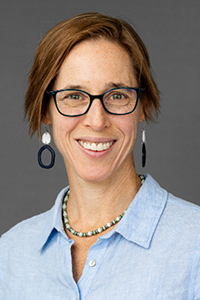
Dr. Vanessa Levesque
Associate Professor of Environmental Policy
University of Southern Maine
Dr. Vanessa Levesque’s research applies a sustainability science perspective to current environmental planning and policy challenges. She examines collaborative efforts to address these challenges, with a focus on understanding how co-produced knowledge can spur action, especially at the municipal level. She has explored these topics through mixed methods approaches, from quantitative, statistical analysis of municipal policy adoption drivers, to social network analysis of a long-term collaborative process regarding vernal pool conservation, to in-depth qualitative interviews and document review related to climate adaptation action by New Hampshire municipalities. Her research is predicated on partnerships with non-academic entities such that results not only advance academic understanding of environmental policy, but also provide needed information about content or process to further efforts on-the-ground.
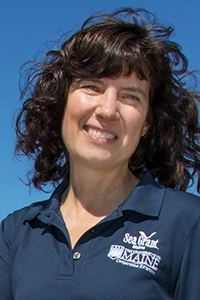
Kristen Grant
Senior Extension Program Manager for Coastal Community Resilience and Diversity, Equity and Inclusion
University of Maine Cooperative Extension
Kristen’s work focuses on the interactions between the people, the resources, and the ecosystems of the coast. Her work includes a range of activities to build the capacity of coastal communities to plan and adapt for their future, such as understanding erosion trends and planning for coastal hazards, considering housing options, addressing coastal access and waterfront development issues, and engaging community stakeholders. To this work, Kristen brings a Master of Science degree focused on Environmental Education, and has an extensive background in outreach education and community development.
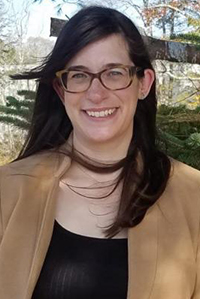
Emily Rabbe
Executive Director of the Lincoln County Regional Planning Commission
Emily Rabbe is the Executive Director of the Lincoln County Regional Planning Commission (LCRPC), serving the 19 municipalities in Lincoln County. Emily brings fifteen years of planning, permitting, and ordinance review experience in both public and private sectors to the LCRPC, with a focus on environmental planning and hazard mitigation. Her work includes coordinating with State and federal agencies and partners to provide land use planning and environmental technical assistance to Lincoln County municipal leaders, boards, and committees.
